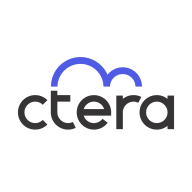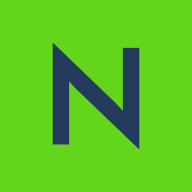

In the realm of enterprise file services, CTERA Enterprise File Services Platform and Nasuni compete with their extensive scalability and resilience. Nasuni seems to have the upper hand due to its unified file system and global file locking capabilities, which facilitate seamless collaboration and data access globally.
Features: CTERA offers flexibility in workload separation, comprehensive data protection, and effective hybrid and public cloud deployment support. Nasuni provides continuous file versioning, disaster recovery, and a unified file system with global file locking, ensuring seamless global collaboration.
Room for Improvement: CTERA could improve its logging and monitoring capabilities, provide seamless updates, and address scalability issues with legacy systems. Nasuni users seek advancements in interface design, user accessibility, and file editing features, along with enhanced cloud integration and reporting.
Ease of Deployment and Customer Service: CTERA is known for robust support and proactive customer interactions, enabling effective hybrid deployments. Nasuni offers ease of management across cloud environments, though some deployment features could be improved, with generally reliable support.
Pricing and ROI: CTERA's pricing is competitive, reducing costs by eliminating extensive hardware, while Nasuni, though pricier, justifies its cost with advanced features and ease of management, appealing to various business scenarios with distinct pricing structures and ROI.
Adding SSD storage to Windows file servers is expensive, and we no longer need to back up those devices.
I am positive that CTERA has helped reduce the total cost of ownership by eliminating the need for manual storage management and reducing storage service processes.
They swiftly address concerns and take ownership of the call, providing a very satisfactory support experience.
The quality and speed of support for CTERA Enterprise File Services Platform is some of the best in the industry.
For critical issues, we receive a call within 10 to 15 minutes of creating a request.
If we need to upgrade CPU and memory, we should be able to do that without a license upgrade.
The licensing supports various data sizes, such as EV16 supporting up to 16 terabytes, and if you exceed that, you move to EV32.
CTERA is a very scalable product, allowing us to grow.
I rated the scalability as seven because even though the solution can scale, load balancing must be done manually, as it's not automated.
It has been pretty stable since then.
We had things deployed for years, and we were suddenly getting cloud sync issues that were crashing our sites.
It is very stable and reliable.
AI and automation features could enhance the platform, such as AI-powered search, predictive storage analytics, and intelligent alerts for proactive monitoring.
The main problem is that if two people are working on the same file, for example, one in the U.S. and one in Israel, they can overwrite each other’s work without any notification.
It would help to have a global single-pane-of-glass view of all my CTERA devices.
I suggest Nasuni improve their syslog forwarders to support TCP protocol, as it's more secure than UDP, which is plain text and not protected at all.
Unlike other solutions that require hardware purchases, CTERA offers software licensing with flexibility across multiple infrastructure providers.
CTERA’s pricing should be more proportional and accessible so that cost is not the factor preventing customers from purchasing.
CTERA's pricing seems to be on par with some of the other players, such as Nasuni and Azure.
I prefer solutions with lower pricing.
As soon as something is written to the device, CTERA copies it to the cloud, where it's versioned with snapshots so we can recover it.
A vital advantage of this platform is its instantaneous recovery capability, allowing seamless access to a secondary gateway if the primary one fails.
When it comes to data protection in CTERA Enterprise File Services Platform, we have encryption methodologies and we also have ransomware protection, which is a wide variety of features offered along with the CTERA appliance and application.
The features I find most valuable in Nasuni are the unlimited snapshots, antivirus capabilities, auditing, and ransomware protection.
| Product | Market Share (%) |
|---|---|
| CTERA Enterprise File Services Platform | 20.2% |
| Nasuni | 27.5% |
| Other | 52.3% |

| Company Size | Count |
|---|---|
| Small Business | 2 |
| Midsize Enterprise | 2 |
| Large Enterprise | 9 |
| Company Size | Count |
|---|---|
| Small Business | 3 |
| Midsize Enterprise | 8 |
| Large Enterprise | 24 |
The CTERA Enterprise File Services Platform provides a cloud-native global file system over public and private object storage, revolutionizing the world of hybrid cloud data solutions. Enhanced by a rich data services ecosystem, CTERA enables enterprises to gain full control of their data for optimal edge performance, data insight, and governance. The platform focuses on security, providing features like data encryption, access controls, and ransomware protection. Centralized management tools enable efficient data control and monitoring. The platform is being used to replace legacy NAS and file servers, especially at remote locations, and simplify backup and disaster recovery of file data while providing the flexibility of multi-cloud deployments with infinite scalability. CTERA is at the core of hybrid cloud transformations of some of the world’s largest banks, healthcare organizations, global media groups, and government agencies, in deployments that scale to tens of petabytes.
Nasuni is a file data services enterprise focused on assisting firms with their digital transformation, global expansion, and information awareness. The Nasuni File Data Platform is a suite of cloud-based services designed to enhance user productivity, ensure business continuity, provide data intelligence, offer cloud options, and simplify global infrastructure. This platform and its auxiliary services are projected to replace conventional file infrastructure such as network attached storage (NAS), backup, and Disaster Recovery (DR), with an expandable cloud-scale solution. By storing file data in scalable cloud object storage from multiple providers, Nasuni positions itself as a cloud-native alternative for traditional NAS and file server infrastructure. Based in Boston, Massachusetts, USA, Nasuni serves sectors like manufacturing, construction, technology, oil and gas, financial services, and public sector worldwide, offering its services in more than 70 countries.
James J., IT Manager at a marketing services firm, says Nasuni’s management dashboard is helpful because he's able to view all of the different filers at once rather than check each one of them individually. He values the software’s security, reliability, good performance, helpful alerting, and responsive support.
According to a Server Engineering Services Lead at a mining and metals company, Nasuni offers good OR and DR capabilities, performs well, offers data security, and continuous file versioning helps recover from hardware failures.
The Managing Director of IT at a construction company appreciates Nasuni because it eliminates a lot of work that was previously done when managing backing up and restoring data files.
We monitor all Cloud Storage Gateways reviews to prevent fraudulent reviews and keep review quality high. We do not post reviews by company employees or direct competitors. We validate each review for authenticity via cross-reference with LinkedIn, and personal follow-up with the reviewer when necessary.